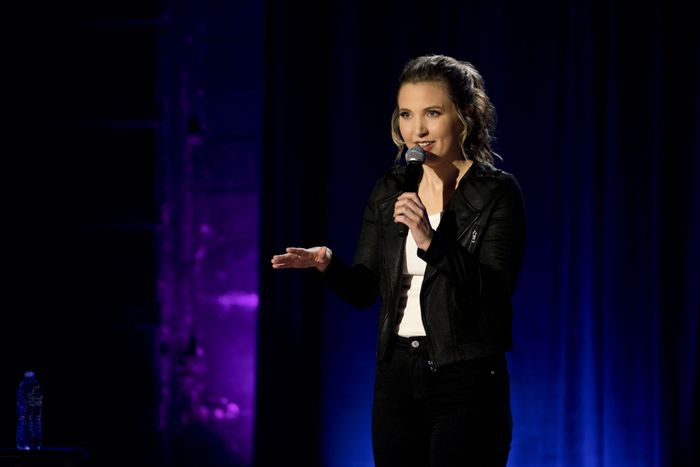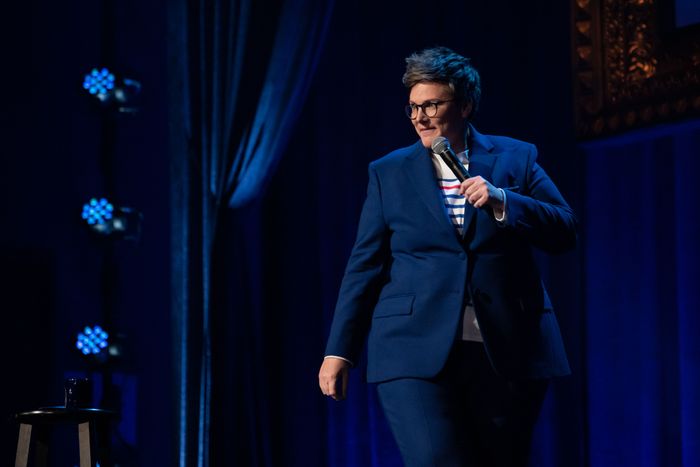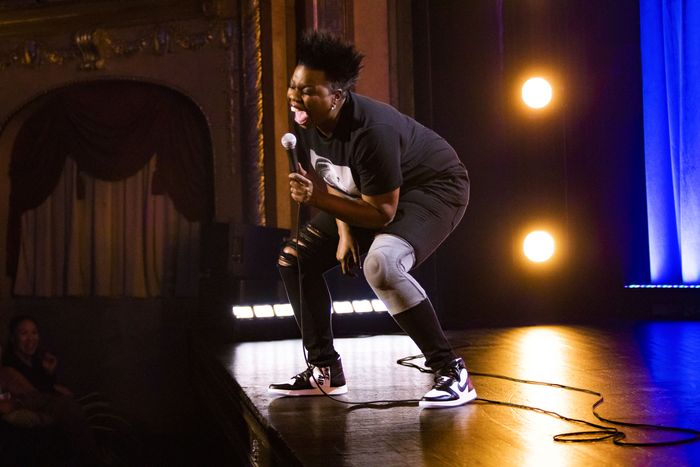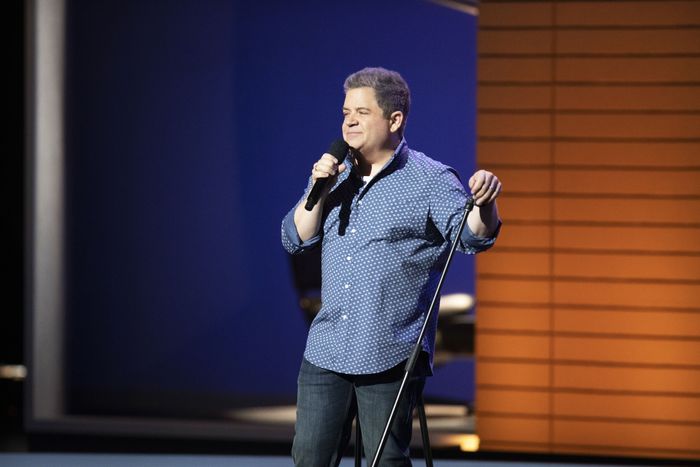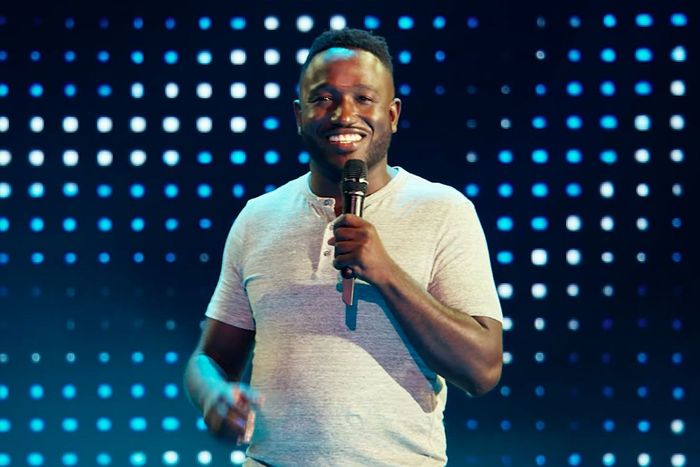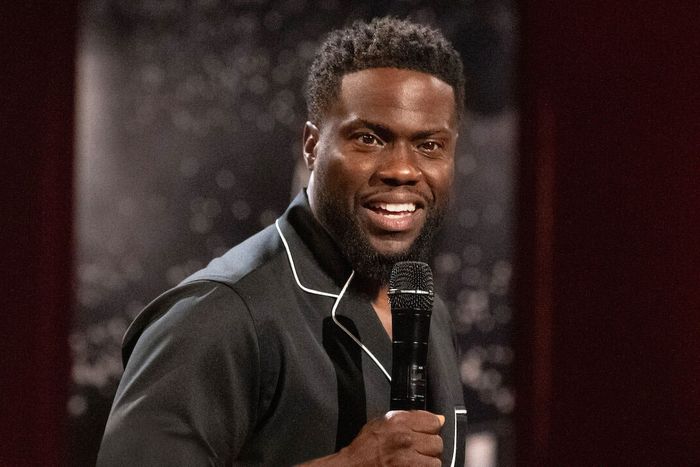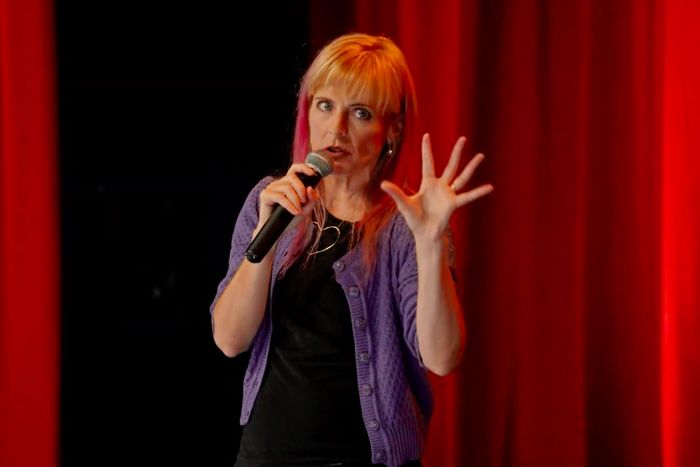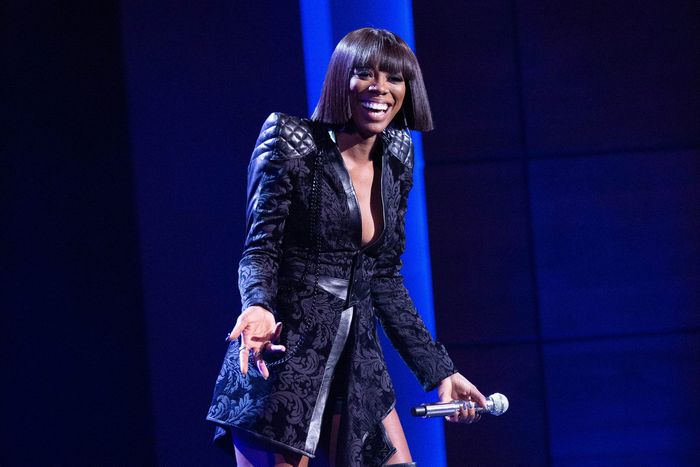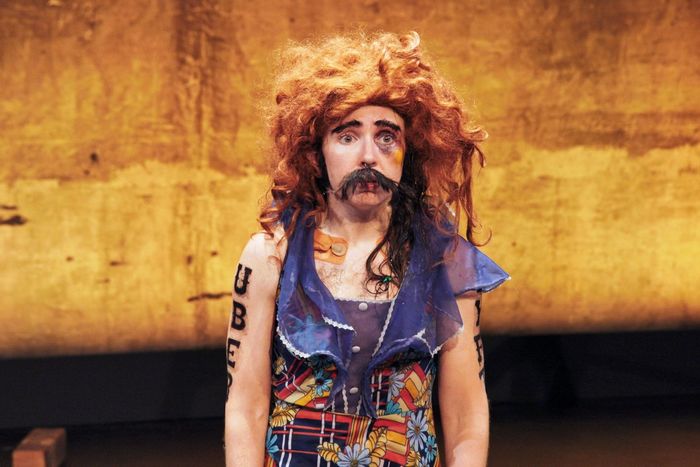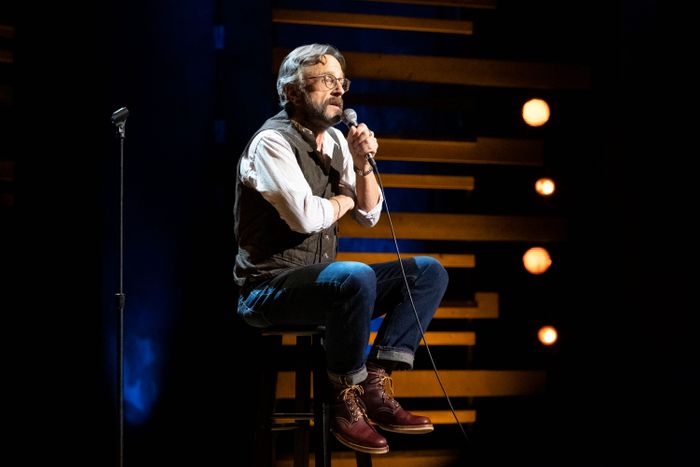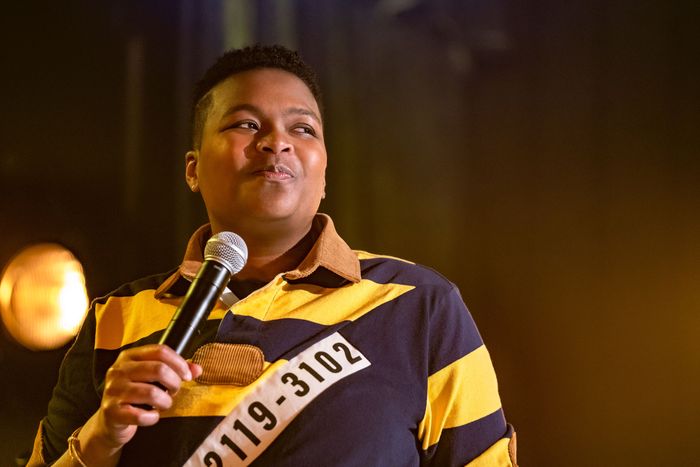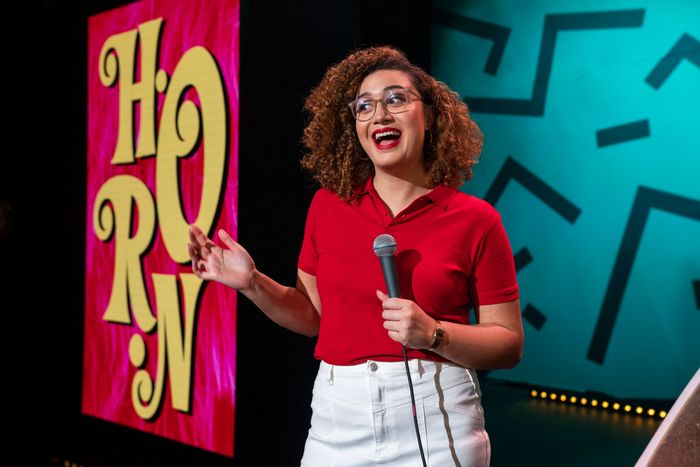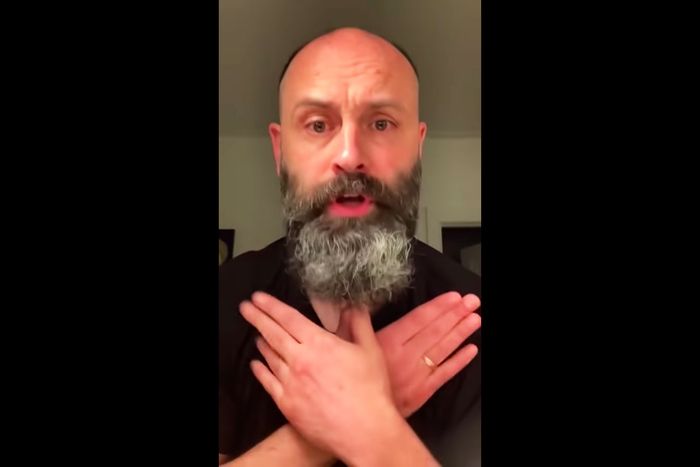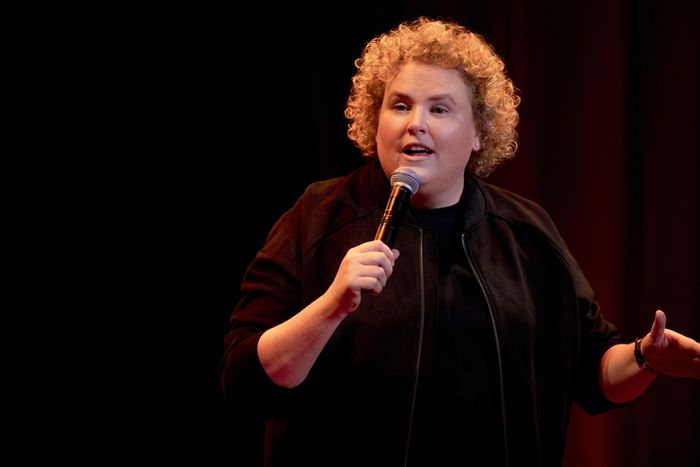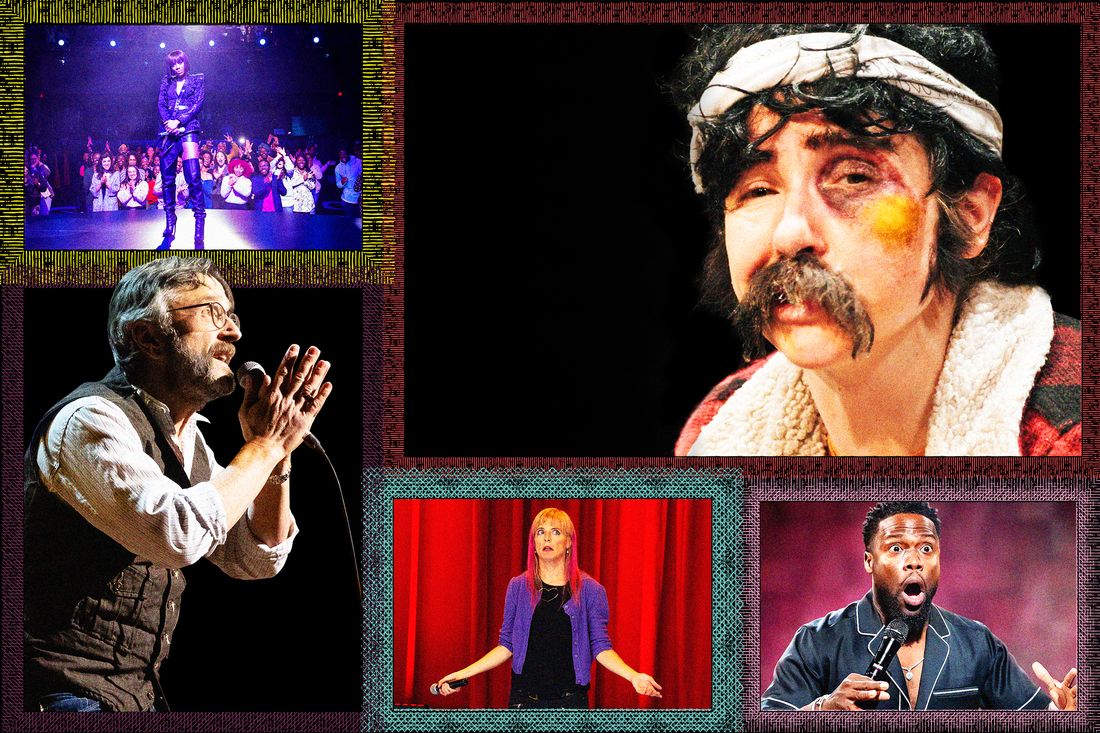
This year drew an inescapable line across all of culture, demarcating things produced before and during the pandemic. That line is palpable in every medium, but for stand-up comedy, it’s not so much a line as it is a crater. Everything that makes stand-up work — the audience full of laughing people, the stage, the promise of a world that stays the same long enough to write a joke that will still work next month — vanished in the space of a few weeks, and comedy was left to figure out entirely new ways to make people laugh.
This list reflects that impossible division. To try to even things out, it only includes hour-long specials that are dominated by one voice, so Dave Chappelle’s 8:46 isn’t here, and neither is Colin Quinn’s drive-in comedy special. There are specials here from before, many of which currently feel like nostalgic voyages to a lost world, which is especially appropriate for a special like Leslie Jones’s Time Machine that’s so conscious about memory and reflection. There is one special here from after the pandemic arrived, Kevin Hart’s Zero F**ks Given, which feels like a promise of what next year might look like: a careful negotiation of safety and risk and the need to still get up on a stage somehow. But for me, at least, the best specials this year were the ones that managed to transcend the division, or speak to it prophetically, or be so totally themselves that I was drawn in, in spite of the feelings of dislocation and loss. It was a long, dark year, but there were still great things to laugh at. Thank God.
Editor’s Note: Listen to Kathryn VanArendonk discuss her list of the best comedy specials of the year with Jesse David Fox in the below episode of Vulture’s Good One podcast:
10. Quarter-Life Crisis, Taylor Tomlinson
Tomlinson’s Quarter-Life Crisis is confident and snappy and so much messier than its title might lead you to expect. Yes, there are a lot of “dating in my 20s” jokes. Tomlinson’s able to tell them in a way that feels fresh and strange, the ideal combination of a wildly familiar topic told in an individual way. The slicing, uncomfortable, palpably frustrated material about her own childhood is particularly funny, and the combination of those two ideas — dating, her upbringing — come together into a special that’s secretly about what it means to be a good parent and a good person. (But funny — I promise!)
9. Douglas, Hannah Gadsby
Although Douglas is looser, less consistent, and less full of righteous rage than its famous predecessor, Nanette, it’s still about ten degrees tighter than most hour-long specials. Gadsby has an intense love of maps and structure, and in Douglas that love becomes its own joke, as Gadsby begins the special by explaining the whole arc of the hour to come in fairly minute detail. It’s tough to live in such a meta-aware space and get gut-level laughter, but at times in Douglas, Gadsby manages to do both, eliciting some big, goofy laughs. It’s fun even when it indulges Gadsby’s need to needle and scold.
8. Time Machine, Leslie Jones
Jones is such a buoyant, compelling stage presence, and one of the most impressive things about Time Machine is the way she physically embodies leaps across time, imagining and depicting herself in her youth and in middle age, toggling giddily between the two. It gives the whole special a rhythm and sense of spectacle — Jones performing a dance she swears she did to try to catch Prince’s attention when she was in her 20s is a particular highlight — and is unbelievably precise. The show is deliciously silly. The way Jones sits astride the gap between her current self and this younger, goofier person makes it a little poignant too.
7. I Love Everything, Patton Oswalt
Oswalt is at his best in this special as a portraitist of lovable outcasts. While he does talk a little about his life, his family, and parenting, he comes most alive when he’s drawing a picture of some strange character who lives in a pocket of the world that Oswalt mostly invents. His joke about an apology note that his wife leaves on his car windshield is a classic example: It could just be a bit about the argument they had and the strangely worded note she leaves him. But no — for Oswalt, that note conjures an imaginary serial killer, someone stalking him in the woods. The whole special is like that, and it’s a delight to follow Oswalt on his tour of weirdos, imaginary lives, and strange dark corners.
6. Miami Nights, Hannibal Buress
The centerpiece of Buress’s Miami Nights is its second half: a winding, self-reflective account of an incident in 2017, when Buress was arrested for disorderly intoxication outside the Art Basel show in Miami. Rather than gloss over or make light of it, Buress unspools the event in exhaustive detail, moving deliberately through each moment in sequence while tracking his own exasperation, fury, fear, discomfort, and bafflement. Inevitably, magically, it’s also an account of exactly how funny the entire experience was. Over the course of the story, Buress figures out how to portray it as absolutely absurd in a way that makes the absurdity nightmarish and hilarious at the same time.
5. Zero F**ks Given, Kevin Hart
This year has been impossibly hard for comedians and everyone whose livelihoods rely on gathering people in a room together, but one tiny silver lining has been that the terrible circumstances of a global pandemic have created a few opportunities for really interesting comedy. For someone like Hart, who’s used to performing in front of enormous crowds at sold-out stadiums, it feels like a real shift to see him standing up on a tiny stage in his own living room in front of a very small, masked crowd. It’s different than his previous specials in a really welcome, exciting way: Hart is looser and more vulnerable, a superstar bragging while wrestling with his need to brag. Very few comedians have the financial resources to do a show like this in 2020. It’s amazing what an intimate setting can do for someone like Hart.
4. Weakness Is the Brand, Maria Bamford
Bamford’s hour, in classic Bamford style, is warm, sharp, strange, and empathetic. She has an uncanny ability to balance her inner monologue with her almost obsessive interest in how other people’s brains work; she writes jokes that somehow manage to be both pointy and endlessly generous. She can fully embody other perspectives, and Bamford has a capacity for warmth that softens but doesn’t negate her insights: She seems to point at what her judgment might be, then immediately turns back toward compassion. It’s a perpetual display of control masked as quirky excess and digression.
3. Momma, I Made It! , Yvonne Orji
Orji has an unbelievably dynamic stage presence — the kind of magnetism that would make it hard to look away even if her material were less interesting. But her command onstage is supported by carefully wrought material, which means Orji comes off as both totally comfortable and absolutely meticulous. In Momma, I Made It!, Orji demonstrates her skill with creating characters and, in the strongest material of the special, shifting seamlessly between voices. Orji, who is Nigerian American, switches between characters from both cultures with perfect, deliberate control, and her impressions always carry with them some sharp vein of commentary. Orji’s mastery comes from her skills in observation and mimicry as well as her awareness of the power of being fluent in many cultural contexts.
2. Nate - A One Man Show, Natalie Palamides
Nate is the oddest, most uncomfortable, and fascinating hour of comedy I watched this year. Its subtitle, “A One Man Show,” is in part an explanation — Palamides spends most of the hour in character as Nate, a clownishly masculine ball of neediness and insecurity. It tells a story, and plays with some very explicit themes involving sex and consent, while keeping Nate and the audience in a state of ambiguity, uncertainty, and unease. Nate relies heavily on crowd work while upending the expectations and role of the audience, which also makes it a fascinating discourse on the nature of theater. On top of all that, it is funny, in a big, broad, guffaw-worthy kind of way. Nate deserves repeated viewings.
1. End Times Fun, Marc Maron
Maron’s End Times Fun feels prophetic. Released in March, it’s one of the only specials filmed before the coronavirus pandemic that doesn’t feel like it exists in a strange lost world — some unreachable, unimaginably lighthearted moment. That Maron was already living in a place of intense apocalyptic anxiety is the foundational idea of the special. The whole thing is fantastic, but it’s worth watching especially for Maron’s Book of Revelation–style closing segment, a mishmash of spiritual systems that combines Jesus, Iron Man, and current politics into a bizarre fantasy sequence. In all, End Times Fun is an oddly lovely response to terror, a cantankerous and exhausted portrayal of how to keep making fun of the world. Because what choice do we have?
Other 2020 Comedy Special Highlights:
Throughout 2020, our critic maintained a “Best Comedy Specials of the Year (So Far)” list. Many of those selections appear above in our top 10 picks. Below are the rest of the specials that stood out this year.
3 In the Morning, Sam Jay
I loved Jay’s Netflix special, which is an impressive, controlled hour of comedy. Jay is inventive and meticulous, and her painstaking care as a joke writer feels almost at odds with her underlying sensibility: to poke at as many uncomfortable third-rail targets as she can find. Greta Thunberg, colonialism, Aziz Ansari, Me Too, race, money — if the highest calling of a comedian is to poke at the most sensitive places in culture, Jay is a high priestess.
Horndog, Rose Matafeo
Wow this is fast, I thought for the first ten minutes of Matafeo’s HBO Max special. It’s electrically, magnetically fast, the kind of Amy Sherman-Palladino speed that feels like tap-dancing over a widening chasm of seriousness and insecurity because you know if you stop, the magic of it will fall apart. It is maybe just a touch too fast, which I say only because Matafeo’s material is good enough that she could give it more space to breathe without worrying that it will collapse. I found myself rewinding to hear a joke again, to follow her train of thought as she zigs and zags between moments of awkward tension and stubborn happiness. It’s an exuberant special, and to her credit, Matafeo’s speed means that the entire hour is packed to the brim with delight.
Stay at Home Comedian, Ted Alexandro
Two things make Ted Alexandro’s Stay at Home Comedian stand out. The first is its sheer circumstances. Written, performed, and filmed entirely during the first few months of quarantine, it is a document of what this year felt like that’s more immediate and more distinctive than most of the smoothed-over stuff that came months later. But the other is the interesting formal experiment of it. It’s made out of sequentially edited slices of a few Instagram Live shows, and put together, they’re sort of like editing multiple stand-up performances from the same venue into a single special. But because they take place over several weeks, they’re also a record of Alexandro’s progressing response to the crisis. It’ll always be one of the works I think about when I think about this year.
Sweet & Salty, Fortune Feimster
The general arc of Feimster’s hour is personally revelatory rather than strictly novel. It’s a coming-out special, mostly, and she’s hardly the first comedian to do extended material on sexuality, childhood awkwardness, and the sense of feeling socially out of place. Feimster’s just particularly joyful about it, though. The whole special is magnetically appealing, especially because she clearly finds her own young, blinkered self to be so endearing and lovable. My favorite joke of the hour is a story about a swim meet, which Feimster somehow participated in enthusiastically even though she had no idea how to swim.
More From This Series
- Freddie Gibbs Made His Own Lane
- The 10 Best TV Needle Drops of 2020
- The 10 Best Theater Moments of 2020



